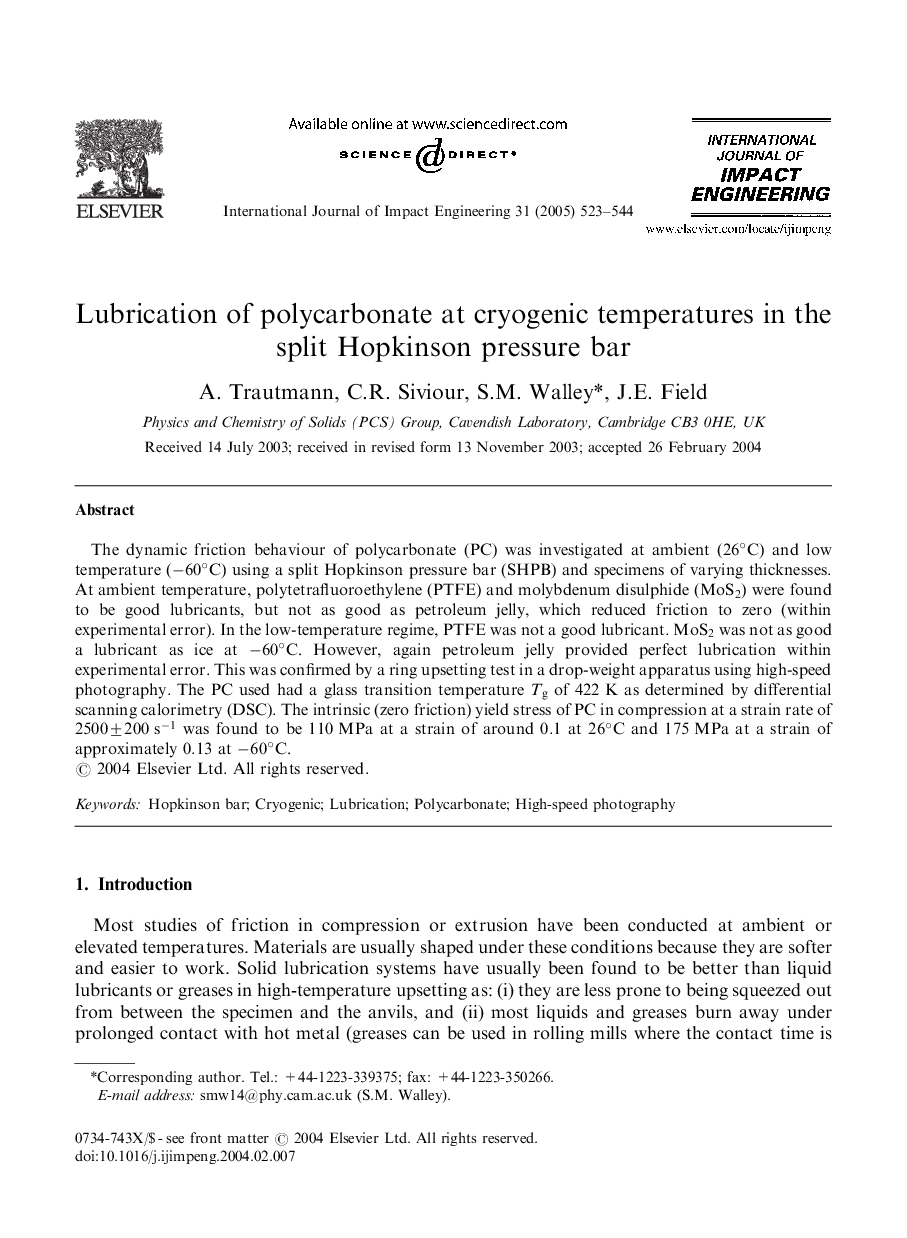| Article ID | Journal | Published Year | Pages | File Type |
|---|---|---|---|---|
| 9704729 | International Journal of Impact Engineering | 2005 | 22 Pages |
Abstract
The dynamic friction behaviour of polycarbonate (PC) was investigated at ambient (26°C) and low temperature (â60°C) using a split Hopkinson pressure bar (SHPB) and specimens of varying thicknesses. At ambient temperature, polytetrafluoroethylene (PTFE) and molybdenum disulphide (MoS2) were found to be good lubricants, but not as good as petroleum jelly, which reduced friction to zero (within experimental error). In the low-temperature regime, PTFE was not a good lubricant. MoS2 was not as good a lubricant as ice at â60°C. However, again petroleum jelly provided perfect lubrication within experimental error. This was confirmed by a ring upsetting test in a drop-weight apparatus using high-speed photography. The PC used had a glass transition temperature Tg of 422K as determined by differential scanning calorimetry (DSC). The intrinsic (zero friction) yield stress of PC in compression at a strain rate of 2500±200sâ1 was found to be 110MPa at a strain of around 0.1 at 26°C and 175MPa at a strain of approximately 0.13 at â60°C.
Related Topics
Physical Sciences and Engineering
Engineering
Mechanical Engineering
Authors
A. Trautmann, C.R. Siviour, S.M. Walley, J.E. Field,
